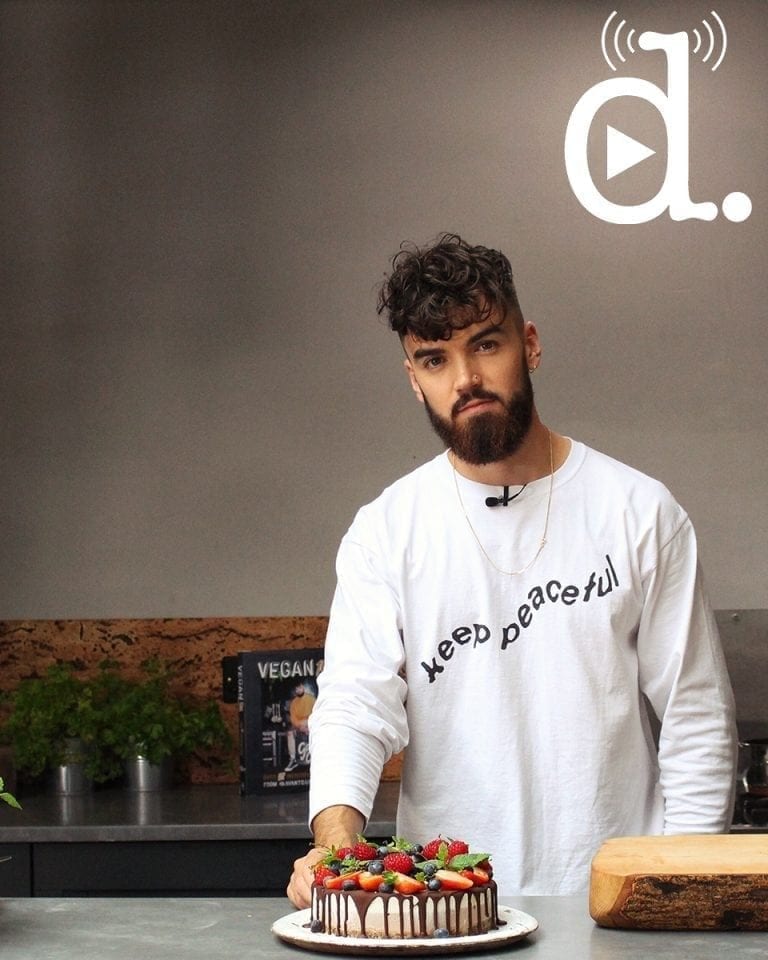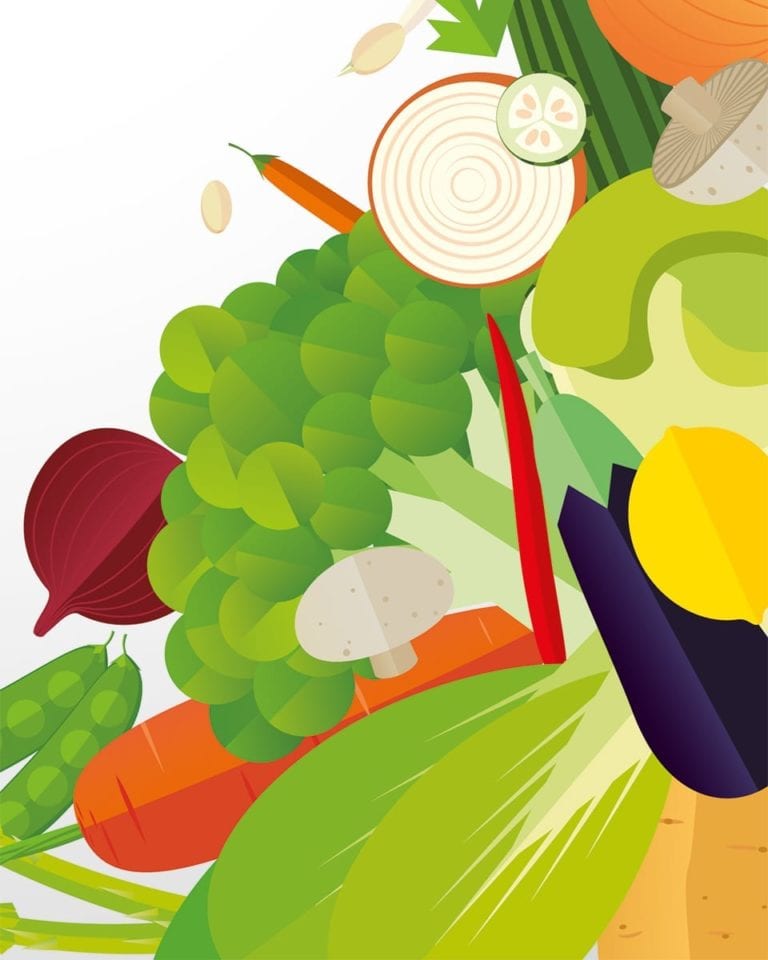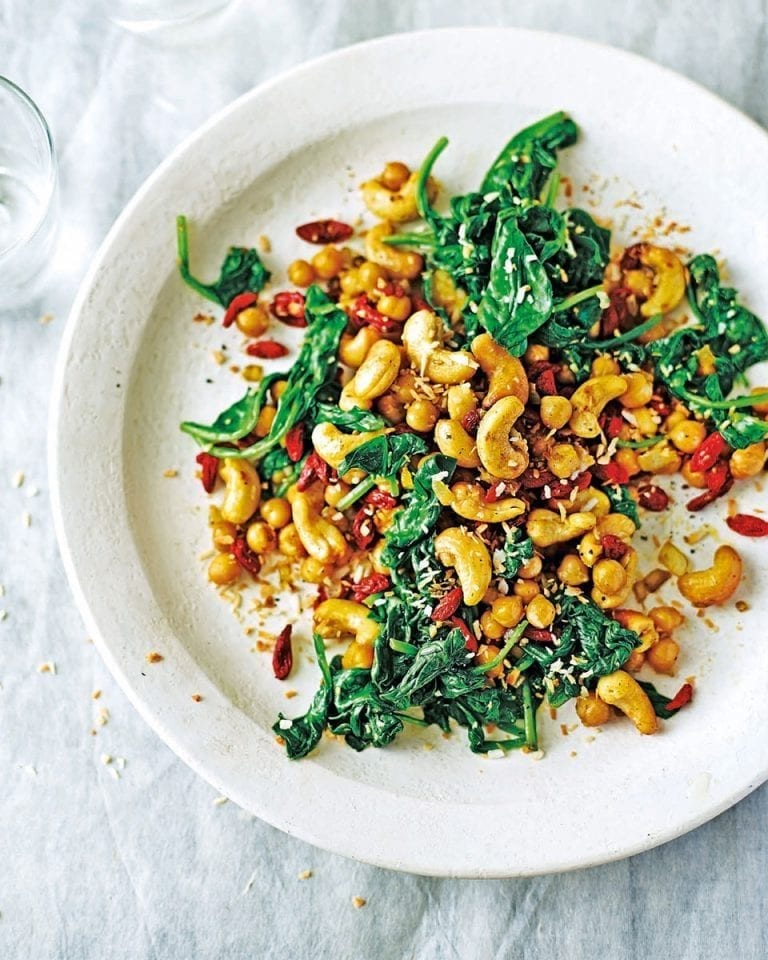Is being flexitarian a 21st-century fad?
Should the mostly-veg crew – the ones who occasionally eat meat and fish – be viewed as failed veggies? As meat lovers with a healthy helping of pretension? Or could a flexitarian diet be the compromise that reconciles appetite with environmental awareness?
Lauren Bravo investigates.
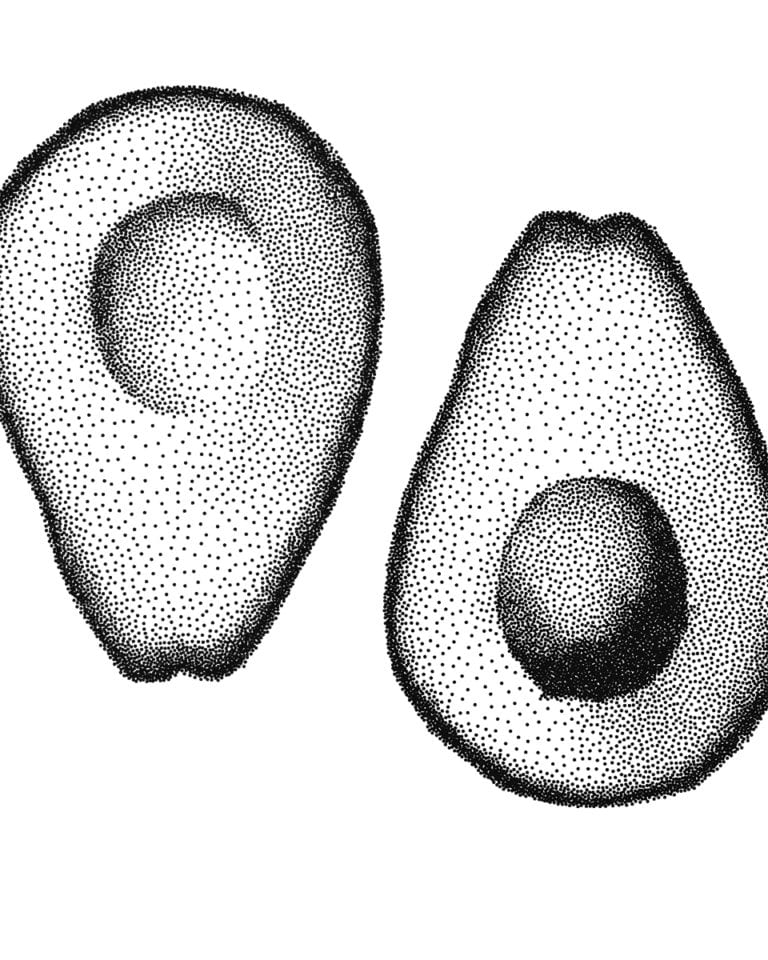
If I told you I was a flexitarian would you cringe? Throw a pie at my head? Dismiss me as an indecisive fence-sitter? If, like me, you’re a food lover who isn’t ‘into’ labels, it’s hard to know what to call yourself. I tend to go with ‘mostly vegetarian’, or perhaps a half-baked vegan. I’m big on nut butters, I tinker with tofu and tempeh, I rarely cook or eat meat at home… but I still flirt with a carbonara on a regular basis because I haven’t made my status official. I’m just trying to consume fewer animal products and put plants at the centre of my diet instead. Meat and me: it’s complicated.
I’m not the only one. While the modern food scene can feel like a battlefield, with lines drawn between extreme clean eaters and butter-soaked nose-to-tail types, there’s another group trying to reclaim the middle ground. Only 2-3 per cent of the UK is currently vegetarian or vegan (news that might surprise anyone who’s ever found themselves in a queue for jackfruit tacos), but more than a third of people now identify as ‘semi-vegetarian’, according to a 2015 Mintel report.
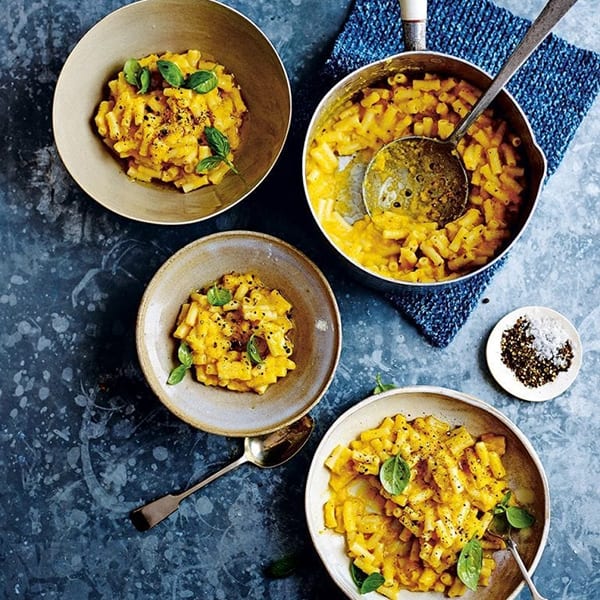
As phrases like ‘plant-based’ appear more on our food landscape, so do ‘weekday vegans’, ‘veggie-vores’, ‘meat reducers’ and ‘veggans’ (vegans who eat eggs, but you probably guessed that). Meat-free campaigns are booming. This year Veganuary, the charity that aims to inspire people to try a vegan month as they start the new year, recruited 168,500 people, up a whopping 100k from 2017, and science has gifted us the world’s first ‘bleeding’ veggie burger (spoiler: it’s beetroot juice). There’s never been a better time to explore new ways of eating, free from guilt and judgement.
Every little helps
Or almost free from guilt, at least. Prepare for eyerolls if you order an oat milk latte with a piece of cheesecake, or a tofu curry with a friend who has definitely seen you scarf a Big Mac. The cynics want definitive answers – are you in or out? On the wagon or off it? Are you going to turn up for dinner and demand a separate gravy? “I found it easier to say nothing and eat meat, or to claim I was totally veggie,” admits my friend Rose, who turned vegetarian, then vegan, over a few years. “Even at the beginning, I still felt I was doing something positive.”
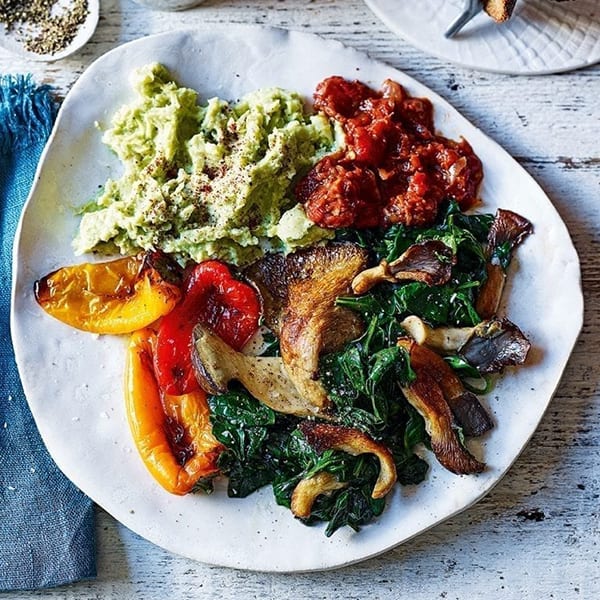
Of course, if you believe that eating animals is inexcusable cruelty, a cheat day might never make moral sense. But for those driven by health or environmental factors, permission to be flexible can mean sustainable change – rather than declaring “I’m a vegan now!” on Monday and ending up face-down in a KFC family bucket by Friday. Some might call it hypocritical; I say realistic. If we’re not quite ready to go the whole hog and swear off meat entirely, surely it’s still better to cut down as much as we can?
Science would seem to agree. Research by the Oxford Martin School, part of the University of Oxford and specialising in climate change, disease and inequality, found in 2016 that widespread adoption of a vegan diet could bring down global food-related emissions by 70 per cent, and a vegetarian diet only slightly lower at 63 per cent – but even if we all stuck to the ‘healthy global diet’ (HGD) guidelines, eating a maximum 300g of meat a week, emissions could still be cut by almost a third.
It takes time to change
It may not be a walk in the park though. “Shifting dietary patterns isn’t easy, and we don’t advocate that everyone should stop eating meat altogether,” says Dr Brian Cook, a senior researcher at Oxford Martin’s Livestock, Environment and People (LEAP) project. “It’s often a slow transition, where
people learn new recipes, discover vegetarian options and replace a few foods at a time.
''Perhaps it’s time to shift the emphasis from what we don’t eat and focus on making plant-based food feel exciting, not exclusionary.''
It can also take time for friends and family members to warm to the idea.” But while hardcore meat abstainers might object to what they see as fair-weather vegetarianism, many committed veggies are happy to have part-timers on board. Veganuary founder Jane Land tells me she made the switch gradually herself, by incorporating more vegan meals into her diet. “Our efforts are focused on creating lasting behaviour change,” she says. “Two thirds of those taking part actually decide to stay vegan post-January, which is great.”
“We think flexitarian is a useful term,” adds Lynne Elliott, chief executive of the Vegetarian Society. “Lots of people don’t want a meat choice every time and they need a way of describing that to other people. It’s great that everyone is more aware of plant-based veggie food.” It’s even been suggested by market analysts that the rise of flexitarianism is driving the demand for better meat substitutes. After all, we still remember how a bacon sandwich tastes.
So perhaps it’s time to shift the emphasis from what we don’t eat and focus on making plant-based food feel exciting, not exclusionary. Because whatever your choice, be it a meat-free day, month or something else (one vegetarian
I know gives herself a week off over Christmas to tuck into the pigs in blankets), moderation could be the key to long-term positive change. We flexitarians can have our cake and eat it too – as long as we’re prepared to justify the buttercream icing.
Subscribe to our magazine
Food stories, skills and tested recipes, straight to your door... Enjoy 5 issues for just £5 with our special introductory offer.
Subscribe
Unleash your inner chef
Looking for inspiration? Receive the latest recipes with our newsletter
